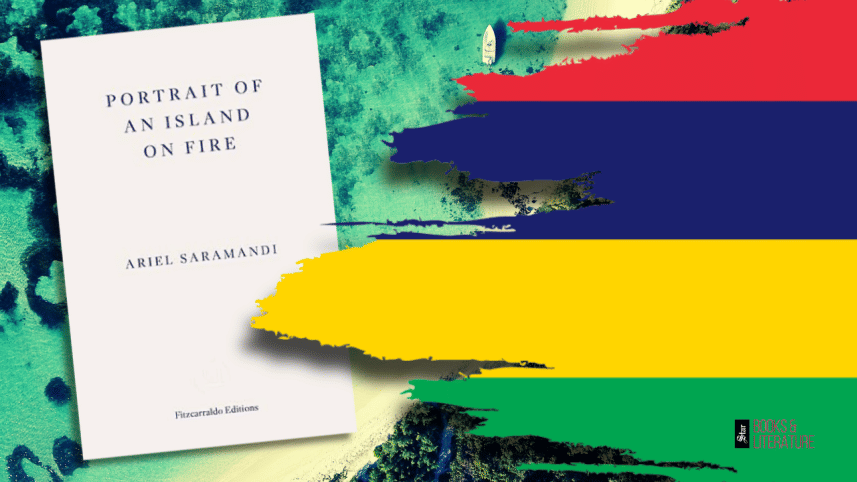A prayer for Mauritius

In the late middle ages, numerous Arab sailors alongside Dutch and Portuguese explorers, such as Vasco Da Gama, explored the regions today known as East Africa and other small islands embedded in the Indian Ocean passing over the island we now know as Mauritius. The Arabs called it Dina Arobi on which they never settled and which never had an indigenous population of its own. The name of the nation state today is named after the Prince of Orange, Maurice of Nassau. On the way to other imperial outposts, the Dutch wiped out the famous dodo bird and killed off chunks of biodiversity. A country with no indigenous populace to govern, the colonists chose to go after natural fauna and resources. Today, Mauritius is composed of a mix of peoples of Creole, Indian, and European descent—all of whom came as settlers, slaves, and workers—with it being the only Hindu majority state outside of Asia.
The constant history of contested entanglements within and with itself remains a feature of Mauritian society which the author Ariel Saramandi tries to disentangle and makes hard headed attempts at understanding the troubled waters of her homeland. Portrait of an Island of Fire is the author's reckoning with her country which remains mired in conflicts over its applaudable yet shallow democratic gains, reeling from racism, rising tides of xenophobia and Hindu nationalism while going head to head with the climate change crisis. Each essay penned by Saramandi, a pseudonym chosen for security purposes, talks about the themes mentioned above tinged with her own experiences of belonging, placemaking, and attachment.
The daughter of a British father and a Creole mother, the author opens up a festering, vivid wound at the heart of Mauritian identity far from the idyllic beaches many of us are accustomed to seeing. Very early in life, she is exposed to the racialised school system in the country, as she explains in her essays "All My Languages" and "An Education", in which she deep dives into how and why the colonial languages—English and French—are associated with progress, freedom, and social mobility. The lingua franca, Kreol, is often sidelined and dismissed in favour of the other two major languages. In Mauritius, language is closely tied to ethnicity and a hierarchy is cemented onto structures that privilege Indians and Anglo and French Mauritians over Creoles.
Written in deep striking prose, Saramandi lends her authorial voice to the changing dynamics of her life whose future is described as "a line that turned out to be a loop" similar to the fate of her homeland. Saramandi approaches each topic with a heightened sense of responsibility ready to vivisect the deep innerworlds of Mauritius itself with Mauritius becoming the first country in the world in 2009 to launch a Truth and Reconciliation Committee to investigate the legacy of slavery and indenture. An interesting facet of life unheard of to many of us is the presence of Bangladeshis on the island who are "Bann-la" in Mauritian Kreol on which she pens an essay drawing attention to their plight. Comprising around 27,000 workers in a nation of 1.2 million people, Bangladeshis are often subject to localised manic xenophobia, buttressed by rising Hindu nationalism, and is a common pattern with workers from the country elsewhere, they live under squalid conditions and low pay. In a country paraded as "Africa's success story", Bangladeshis, just like other immigrant workers, are only "seen in terms of their use-value".
In many ways, the story of Mauritius that Saramandi pens in her series of thought provoking essays is a unique mix of experiences, observations, and interactions of a contested homeland. For any first time reader, the introduction to Mauritius is done properly with a litany of sources from the best of Mauritian literary culture, including well-acclaimed female novelists such as Ananda Devi, Nathacha Appanah, Lindsey Collen, and Shenaz Patel whose voices of courage and agency blend onto her own allowing a fresh perspective of analytical rigour and empathetic grace that comes with each chapter. The problems plaguing Mauritius are very much similar to the problems facing the world in greater and rising frequency from rising misogyny to heightened ethnic and religious tensions to the climate crisis, her book of essays elucidates the need for a renewed focus to look at our respective countries and questions the various roads taken (and not taken). In a way, the book is a prayer for a country by a woman wanting for it to look inwards hoping for a future of accountability and transparency.
Israr Hasan is currently working as researcher in a public health institute.



 For all latest news, follow The Daily Star's Google News channel.
For all latest news, follow The Daily Star's Google News channel. 

Comments